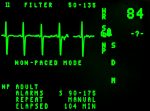
Being that the need for echocardiograms is constantly increasing, prior to deciding where to do this procedure, you should know that there are wide ranges of echocardiogram cost requirements between healthcare facilities in the US.
As you keep on reading this article, you will find out how much money you will need to be spent in order to have this procedure.
However, you must understand the various prices are determined due to the most important factors which include the levels of Medicare and Medicaid reimbursement in different regions, degree of healthcare insurance coverage, the customary charges within a specific geographic area, and deductible or coinsurance requirements.
Echocardiography is a medical procedure that creates images of the heart through the use of ultrasound combined with two and three-dimensional imaging technology.
The process is also commonly referred to as a sonogram.
This procedure allows providers to visualize the internal cardiac structures in order to evaluate and treat a variety of medical conditions.
The procedure starts by placing a transducer on the patient’s chest and a series of sound waves are sent into the body.
These sound waves are reflected by different types of tissues and the reflected waves are captured by the transducer and are sent to a special computer that is specifically designed to process signals and produce images.
Page Navigation
Echocardiograms vs. Electrocardiograms
Both these two procedures are used for evaluating heart conditions.
Doctors use electrocardiograms and echocardiograms to understand how an individual’s cardiac tissues have been affected.
Even though they are similar, these two procedures have some differences as well.
The electrocardiogram is excellent for observing electrical conduction and the resultant electrical activity that occurs during cardiac contraction.
Ultrasound provides insight into the ability of the heart to pump blood and the extent of tissue damage.
The echocardiogram costs are high and it can cause you a large number of expenses that may not be fully covered by certain health insurance plans.
So if you need to have cardiac studies performed on a regular basis, you are encouraged and suggested to carefully plan it in advance.
Variations in Procedural Approach
It is good to know that a couple of different types of ultrasound methods are used to capture images of the heart.
This is due to the fact that some cases require that specific information is needed to make an accurate diagnosis.
The most common types of echocardiograms include transesophageal, transthoracic, stress, and contrast.
During the transthoracic method, the transducer is placed on the chest.
The placement of the transducer in a patient’s esophagus is known as a transesophageal approach.
This makes it possible to capture better images that might be needed in cases where the transthoracic images are not sufficient for a proper evaluation.
A stress echocardiogram is used to observe the functioning of the heart under both resting and active conditions.
A person will need to exercise or drugs can be administered that force the heart to work harder during this procedure.
Contrast is sometimes used while performing a sonogram to capture reflective images that might help evaluate wall thickness.
This method can have an impact on echocardiogram costs.
The Average National Echocardiogram Cost
To find the most accurate information about the average echocardiogram cost in the US, you should get in touch with the Centers for Medicare and Medicaid Services (CMS).
This organization will provide details about annual reimbursement rates.
In 2012, the CMS received claims for 1,555,506 Level II procedures without contrast with an average charge of $2,048.38 and an average payment of $389.11.
California had the highest claims with a mean charge of $4,651.12 and an average payment of $689.63 while North Dakota had the lowest claims at an average of $893.60 and with an average payment of $394.06.
According to these statistics, a procedure can cost anywhere from a few hundred dollars to several thousand.
So, if you have s an insurance plan that covers these services, you might not have to pay anything while those who have no insurance might have to pay the entire charge.
To conclude, prior to having any medical procedure done, you need to get familiar with how high the charge will be and you can expect wide variations in rates for different clinics.
Most healthcare clinics will also provide details about the percentage covered by insurance as well as the amount that the patient will have to pay.








